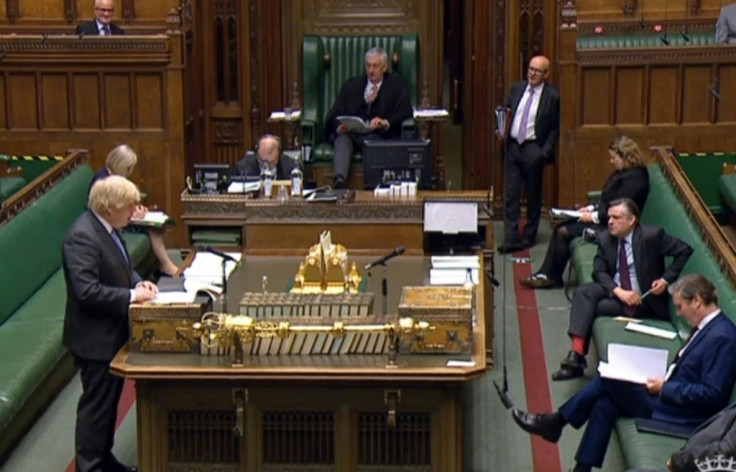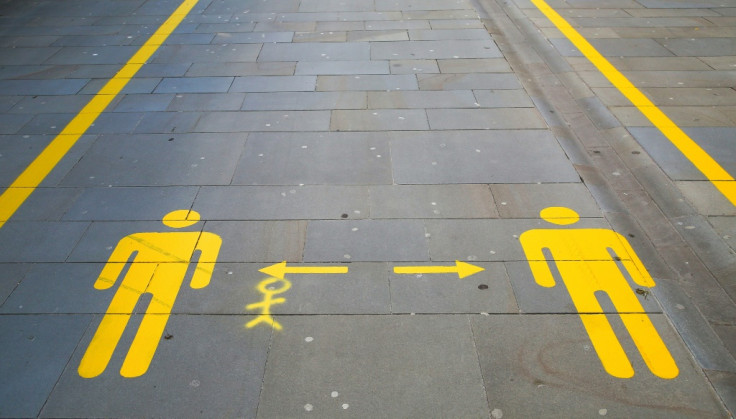Cheers as UK announces English pubs to reopen
Lawmakers in parliament cheered as he called time on the first countrywide closure of pubs since the Great Plague of 1665.
Pubs in England were given the go-ahead to reopen next week after more than three months of closure due to the coronavirus outbreak, in a move hailed Tuesday by the industry.
British Prime Minister Boris Johnson made the announcement of the July 4 reopening as part of an easing of lockdown measures for hospitality, culture and tourism to help kickstart Britain's stalled economy.
Lawmakers in parliament cheered as he called time on the first countrywide closure of pubs since the Great Plague of 1665.
Calling the moves an end to the country's "national hibernation", Johnson said there must be "minimum contact" between staff and customers, with table service only.
Regulars would also have to give contact details in case of any local outbreak.

Johnson said he expected people to apply common sense and not overdo it. "We can't have great writhing scenes in the beer gardens when the virus could be passed on," he added.
The government has come under pressure over its handling of the COVID-19 crisis and its efforts to reopen the country, with fears of a looming deep recession because of the forced closure of businesses and worries that many will un
An Oxford Economics study for the Creative Industries Federation last week said 200,000 jobs were at risk, with theatre revenues down by £3 billion ($3.8 bn, 3.3 bn euros).

The British Beer and Pub Association (BBPA) said the industry faces a "cliff edge", with sales of beer having already slumped to their lowest level on record in the first quarter of this year.
Johnson, who has said Britons have an "inalienable right" to go to the pub, has faced lobbying to relax the two-metre social distancing rule to help businesses get back on their feet.
"Where it is possible to keep two metres apart, people should," he said, announcing the results of a review into the guidance.
"But where it is not, we will advise people to keep a social distance of one metre plus while taking mitigations to reduce the risk of transmission."
BBPA chief executive Emma McClarkin called the reopening "the first step on what will be a very a long road to recovery".

The relaxation of the two-metre rule would allow up to 28,000 pubs, or 75 percent of the total in England, to open, compared to only a third at two metres, she added.
McClarkin urged the devolved governments in Scotland, Wales and Northern Ireland to follow suit.
Cinemas, museums and galleries will also reopen on July 4, as well as restaurants, hotels, bed and breakfast (B&B) and self-catering accommodation.
Shuttered barbers and hairdressers were likewise given the green light to resume business from the same date in what was being dubbed "trimdependence day" on social media.
All firms would have to comply with measures to cut close-contact transmission of the virus, even as the number of new cases and deaths declines, Johnson said.
The head of the Confederation of Business Leaders (CBI), Carolyn Fairbairn, said government guidance would be "critical for success".
Rules on two separate households meeting up indoors, and the closure of libraries, social clubs, community centres and playgrounds were also relaxed.
Prayer and services will be allowed again at places of worship, and weddings of up to 30 people.
Stay-at-home measures were imposed on March 23 as the virus took hold.
The British government has recorded nearly 43,000 deaths of those who had tested positive for COVID-19 -- the worst toll in Europe -- and announced another 171 fatalities on Tuesday.
However, the real figure is likely closer to 60,000, based on excess deaths official statistics.
Even as the numbers of cases and deaths fall, scientists have warned about moving too fast to reopen the country, given fresh spikes overseas and fears of a second wave of infection.
Chief medical officer Chris Whitty said he would be "surprised and delighted if we weren't in this current situation through the winter and into next spring".
Copyright AFP. All rights reserved.
This article is copyrighted by International Business Times, the business news leader





















